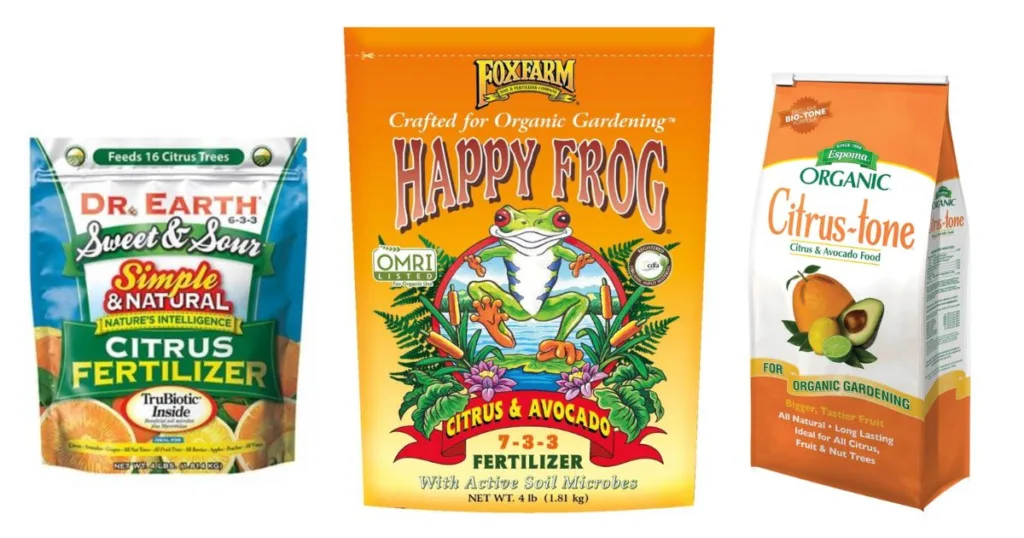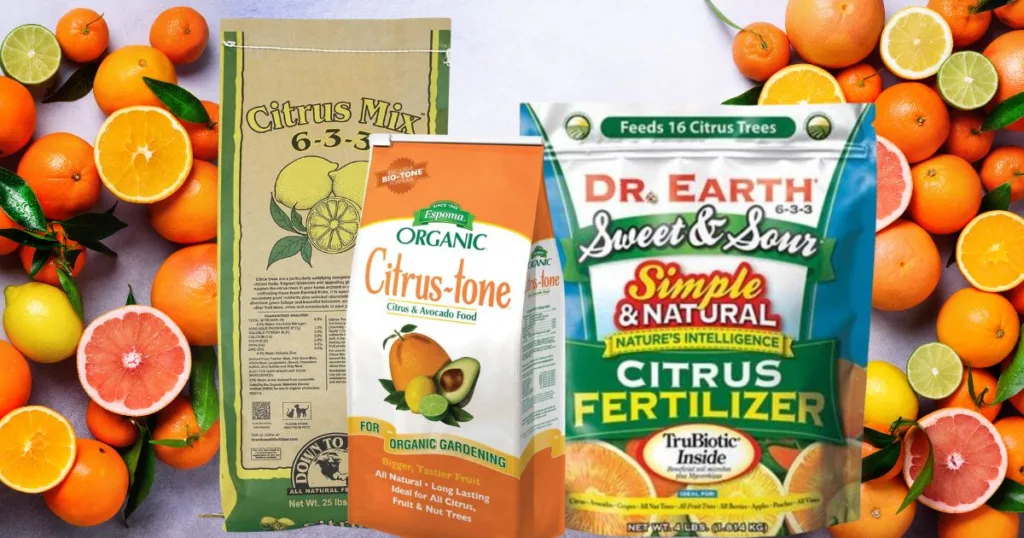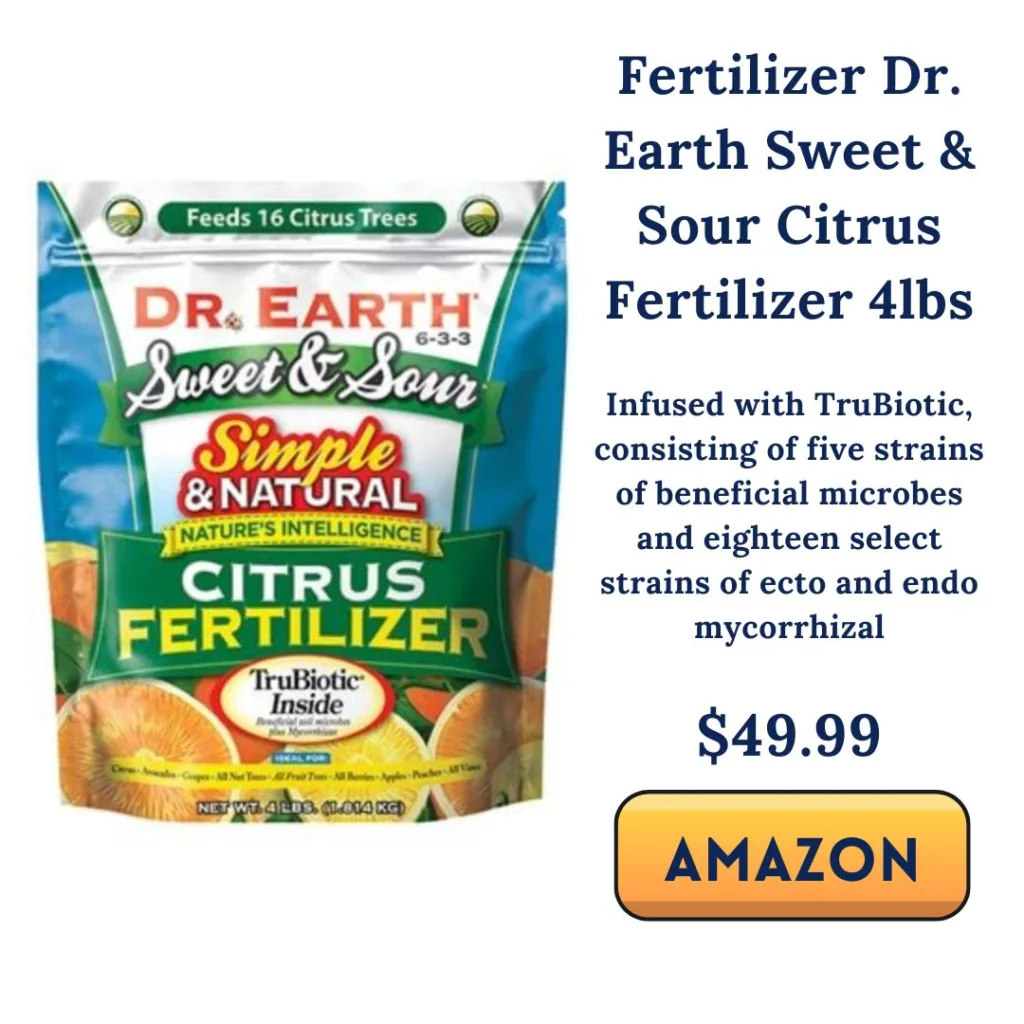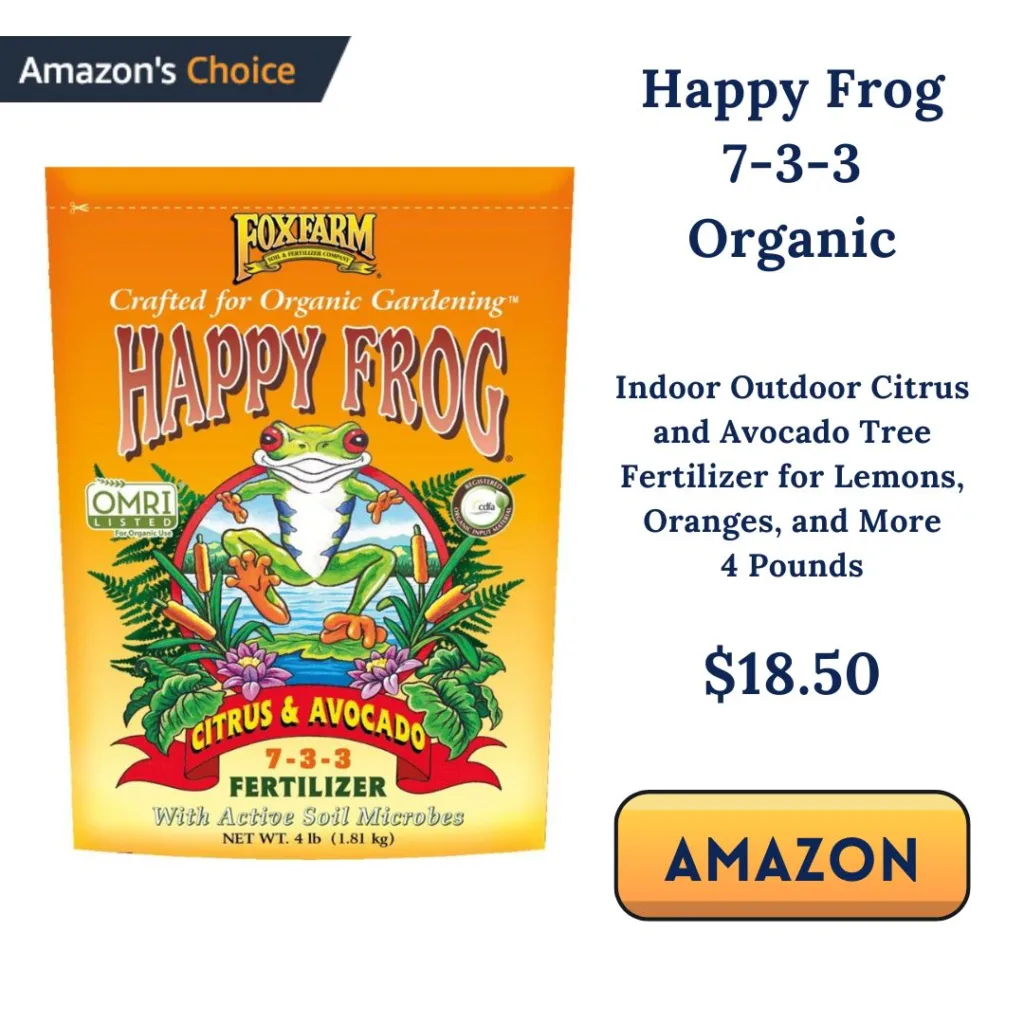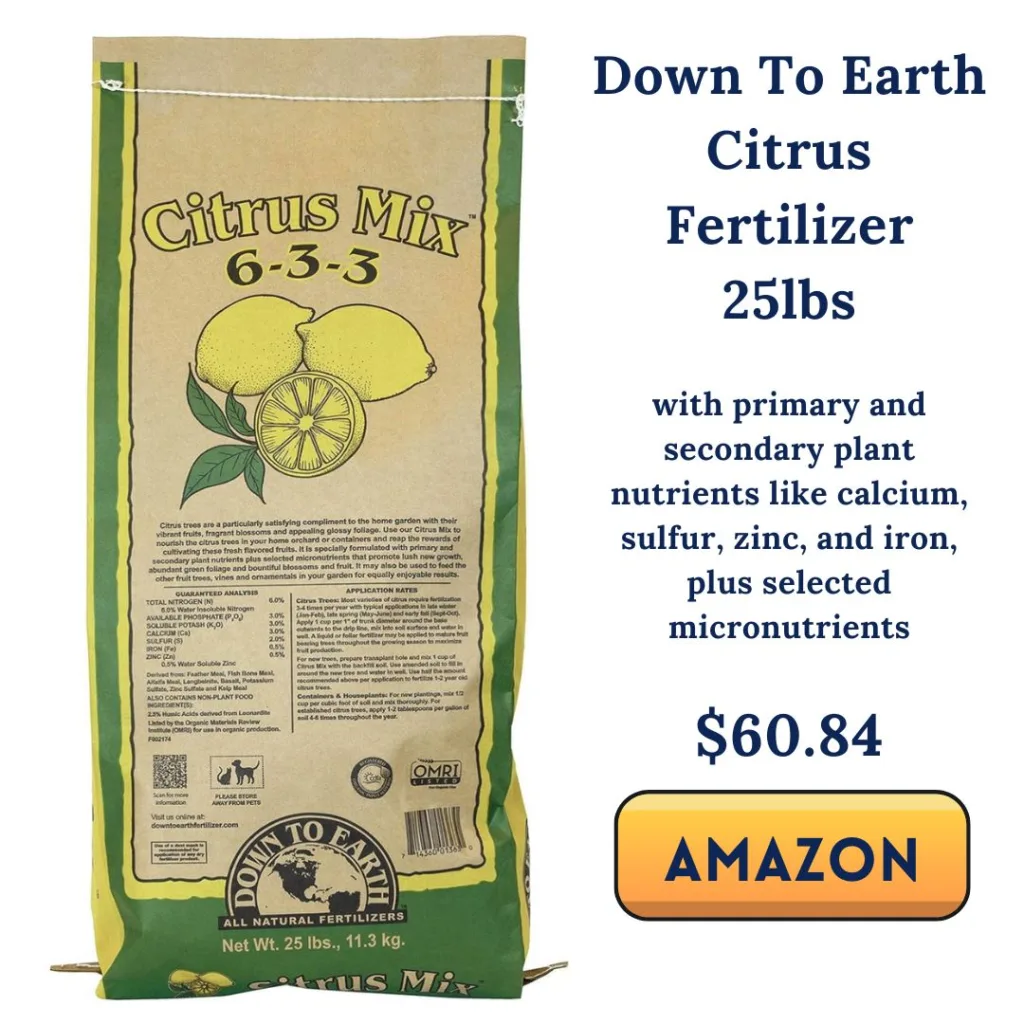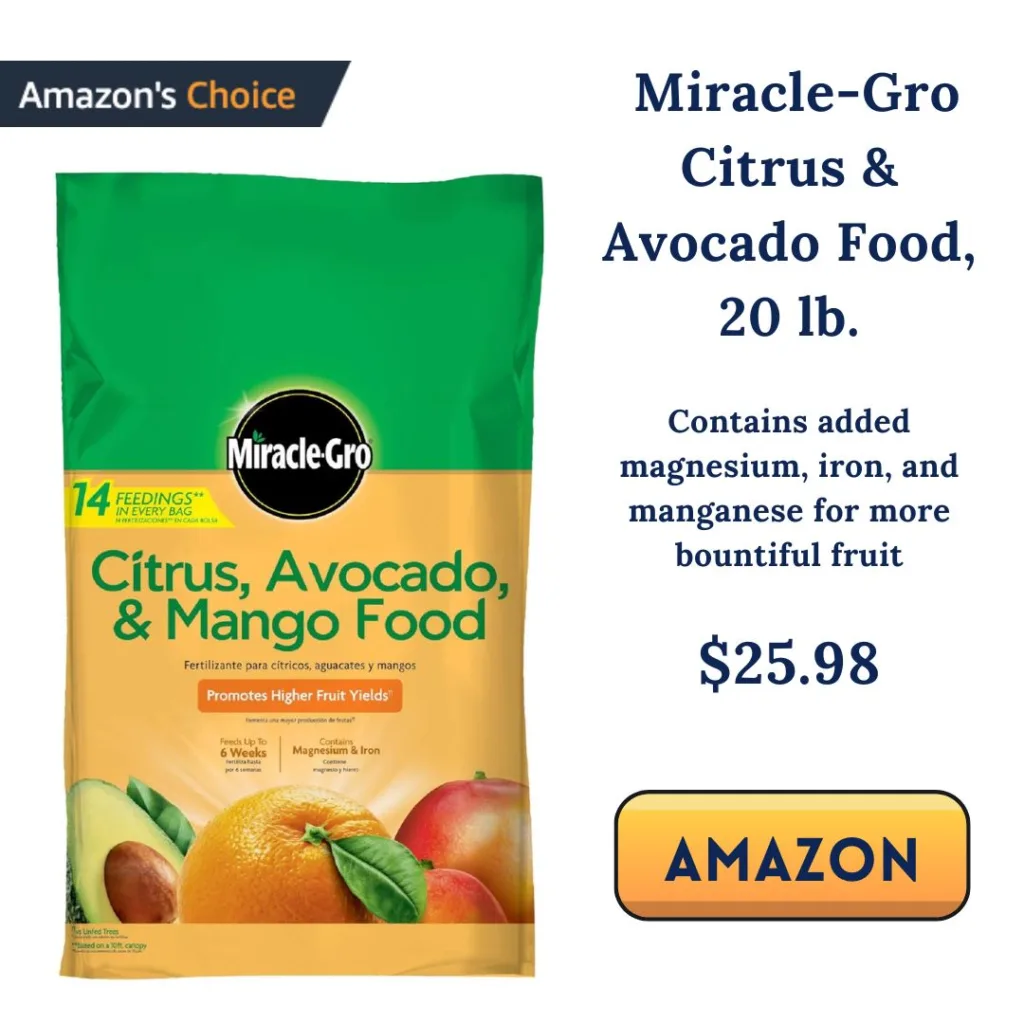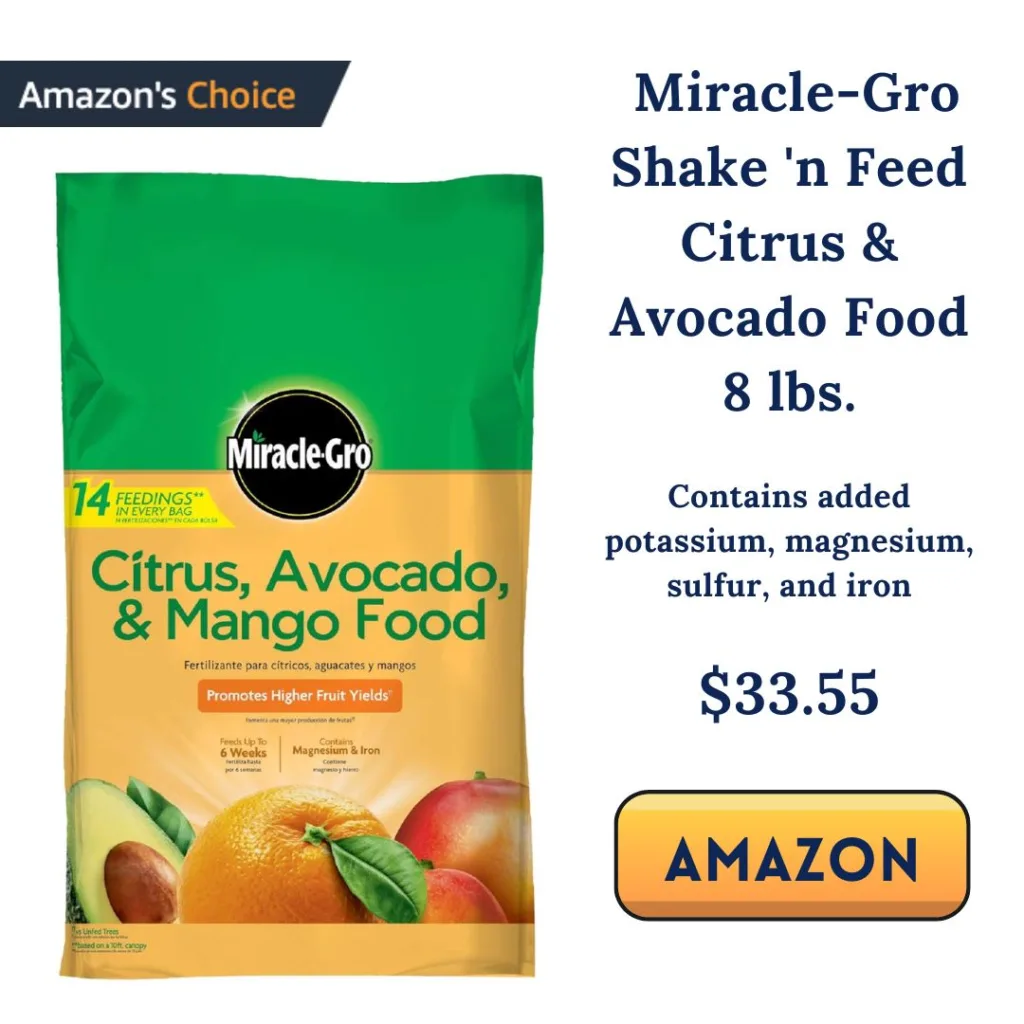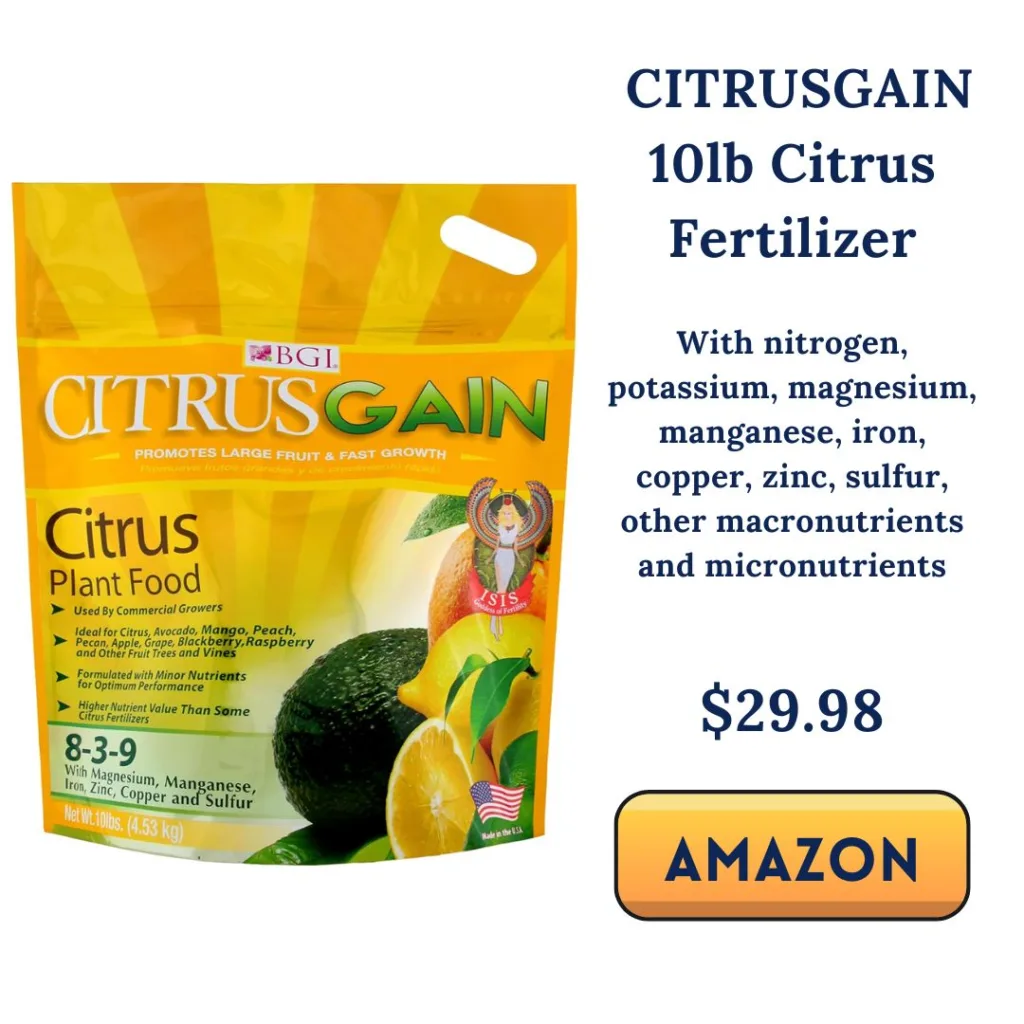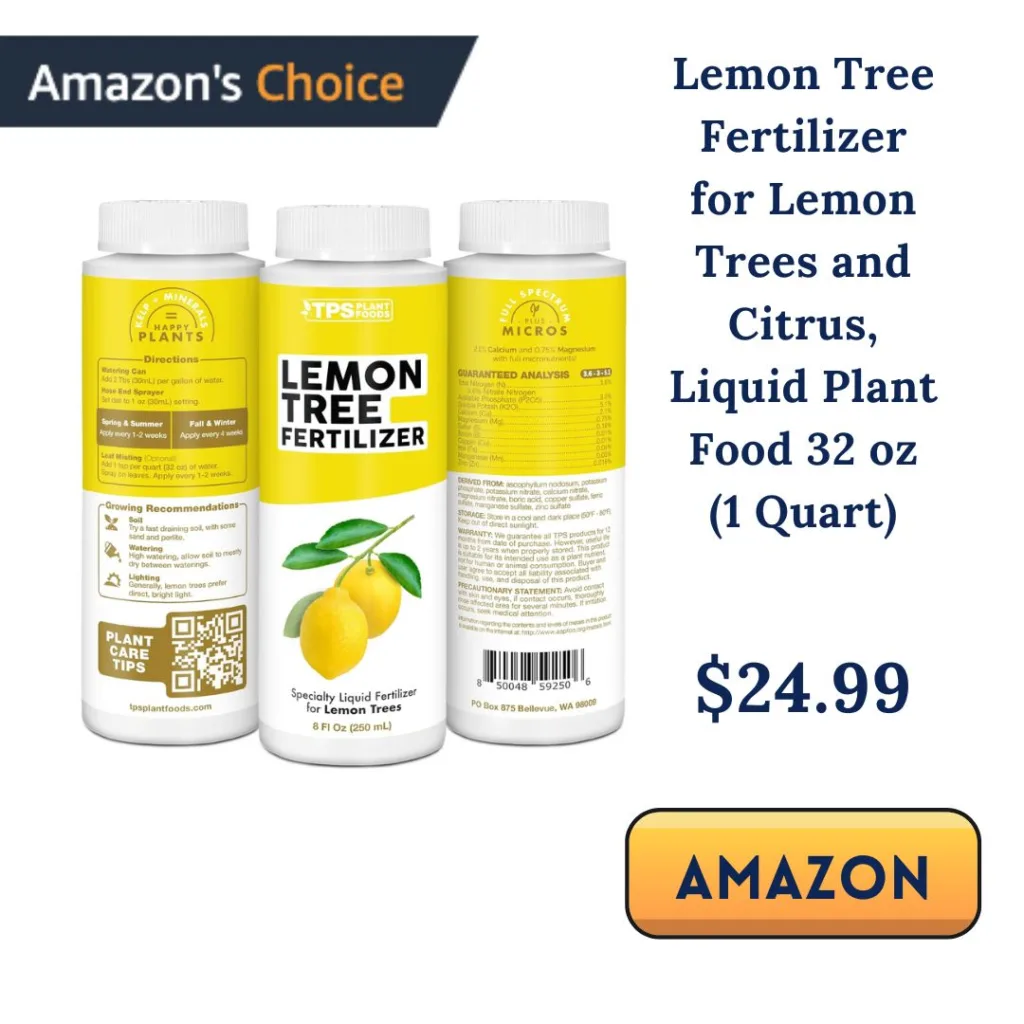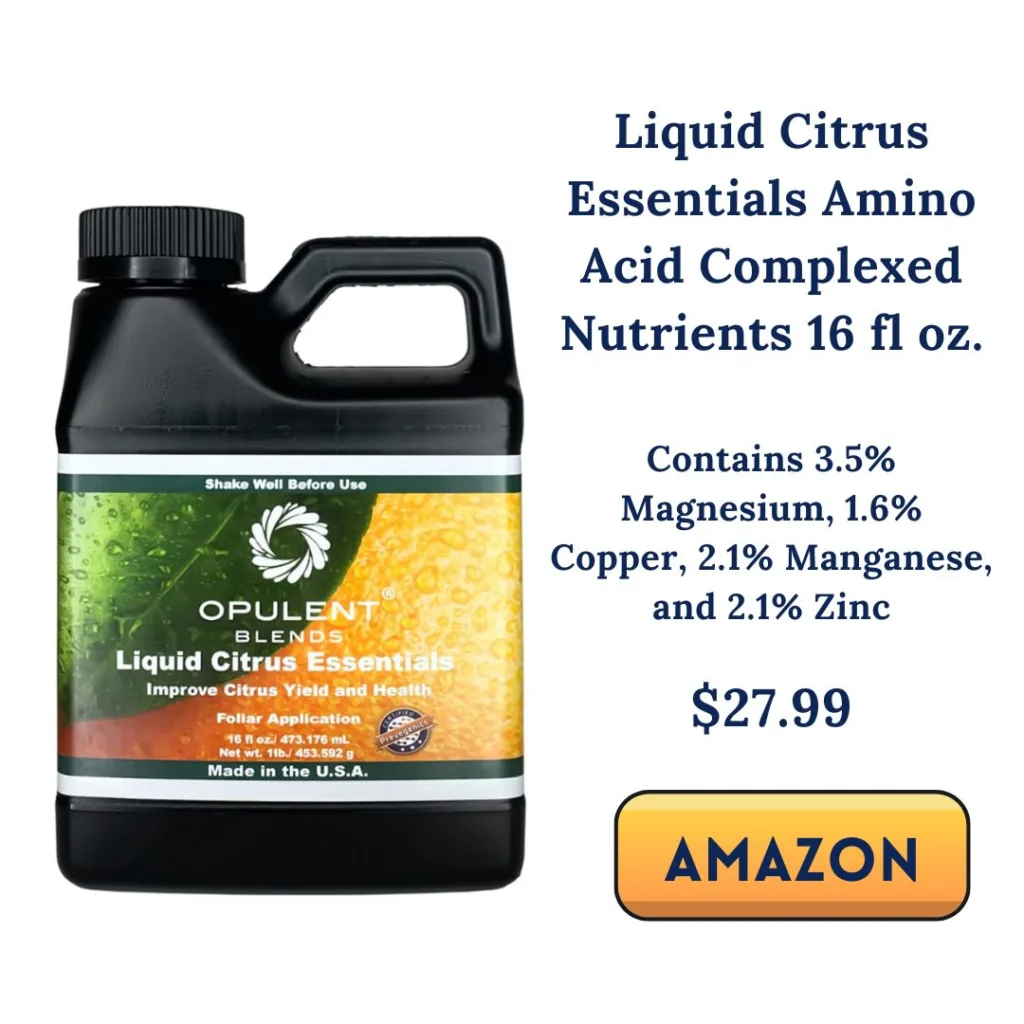The Best Citrus Tree Fertilizer: What When And How To Use It
A Horticulturist And Mediterranean Gardening Expert Shares His Top Picks For The Best Citrus Tree Fertilizer Whether You're Gardening in California, Texas - Or Italy!

- Nathan Heinrich
- Rome, Italy
Growing up in Northern California, I had the good fortune of having several 80-year-old orange trees on my family’s ranch.
My brothers and I spent countless hours in these beautiful mature citrus trees picking their tasty fruit and climbing their evergreen branches.
Those same orange trees are still on my family’s farm and are now over 120 years old.
Whenever I go back to visit, during the late fall or early winter months, I stock up on as many citrus fruits as I can get my hands on.
Sometimes my mom even mails me boxes of oranges and lemons when I can’t make it home.
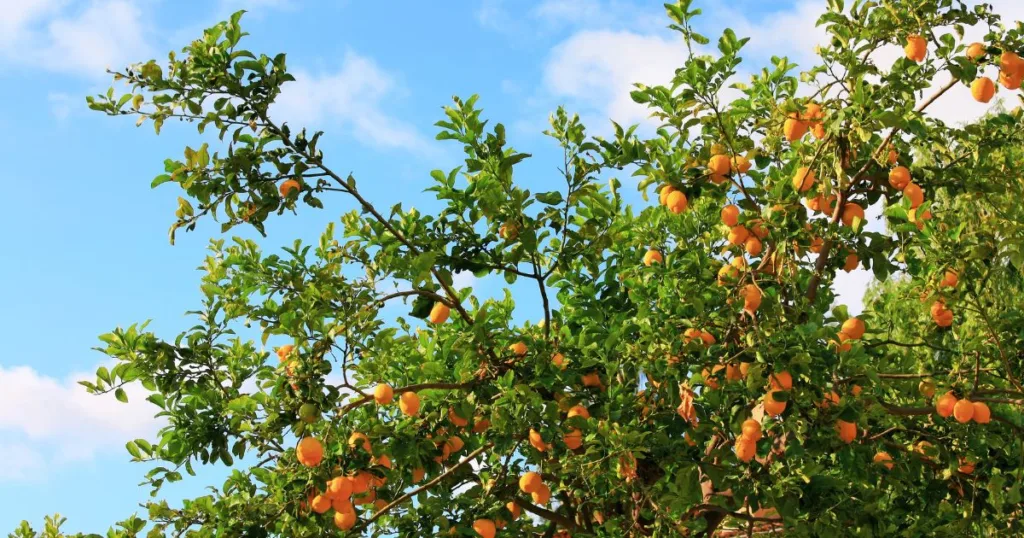
Growing Citrus In California & Italy
Since I moved to Italy, I have been delighted to be able to grow the same citrus trees here as I had growing up on my family’s farm.
I even brought some seeds from my favorite orange tree with me and planted them here in Italy.
Fortunately, caring for citrus trees is quite easy.
Did you know that you can use the same fertilizer for avocados as for citrus?
In this article, I will share with you everything it takes to grow a healthy citrus tree, from the best citrus tree fertilizer, ensure proper soil health, and how to manage pest control organically.
What Is The Best Citrus Tree Fertilizer?
There are lots of great citrus fertilizers on the market. Gardeners have lots to choose from when it comes to feeding your citrus trees.
Everything from organic options with all-natural ingredients to fertilizers made with synthetic chemicals can be found on the market today.
Whatever your citrus-specific fertilizer preference, these Mediterranean fruit trees need a balanced fertilizer with trace minerals and elements but without too much nitrogen.
Here are some of my favorite recommendations for citrus fertilisers whether you’re an organic gardener or not you will find the best option and the right fertilizer for your citrus trees.
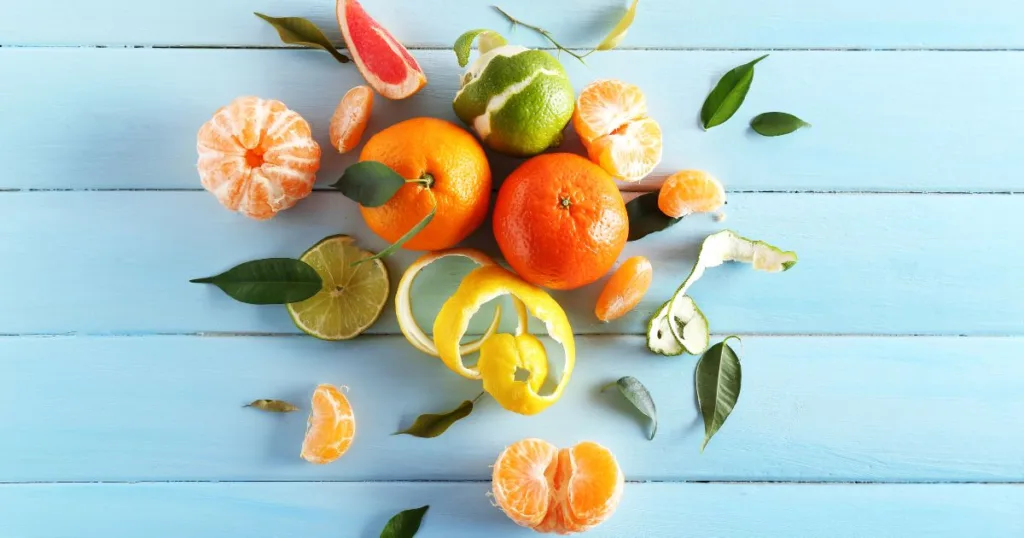
The Best Citrus Fertilizer For Organic Gardeners
Because citrus trees are such a prized element of edible gardens, many a home gardener, myself included, prefer to use only organic products to fertilize and treat their citrus trees.
These are what I believe to be the best organic citrus fertilizer options on the market today.
In my opinion, all good things are organic.
Have you got a whole bunch of citrus trees that need to be fertilized? This big bag of Down To Earth Organic Fertilizer will do the job perfectly.
The Best Non-Organic Citrus Fertilizer - Synthetic Fertilizers
Not all gardeners prefer organic citrus fertilizers.
While I feel that organic fertilizer is best, a complete acid-type fertilizer that’s non-organic is not the end of the world.
These are some of my favorite synthetic and slow release options for citrus fertilizer.
When Should You Fertilize Your Citrus Tree?
Here's An Easy Formula: Remember These 3 Holidays
Mature trees need different amounts of fertilizer than young citrus trees.
A potted Meyer lemon tree needs different amounts of fertilizer than a mature orange with a tree trunk the size of an elephant’s leg.
How do you know how much fertilizer to feed your orange, lime, grapefruit, lemon trees, as well as, avocado trees?
There’s a formula for that!
For each year-old a citrus tree is add a pound (1lb.) of fertilizer then divide the number of pounds by the number of times you feed per year (which is 3x per year).
As an example, let’s take a 6-year-old lemon tree.
You need would 6lbs of fertilizer (1lb for each year). To use the correct amount divide the 6lbs by 3 feedings per year – this gives you 2lbs of fertilizer fed in February, May, and June (or October depending on the climate you live in).
*Once a tree is 12 years old you don’t continue to add more lbs to each additional year – in other words, for a 100-year-old tree you would feed the same amount as a 12-year-old tree (4 lbs 3 times per year).

What Goes Into A Good Citrus Fertilizer?
Finding The Right Balance
Citrus trees like to have regular feeding during the growing season.
To get the proper nutrition into the root zone where it will be absorbed into the citrus leaves, branches, blooms, and fruit you will need to supply your trees with fairly large amounts of nutrients to avoid macro and micronutrient deficiencies.
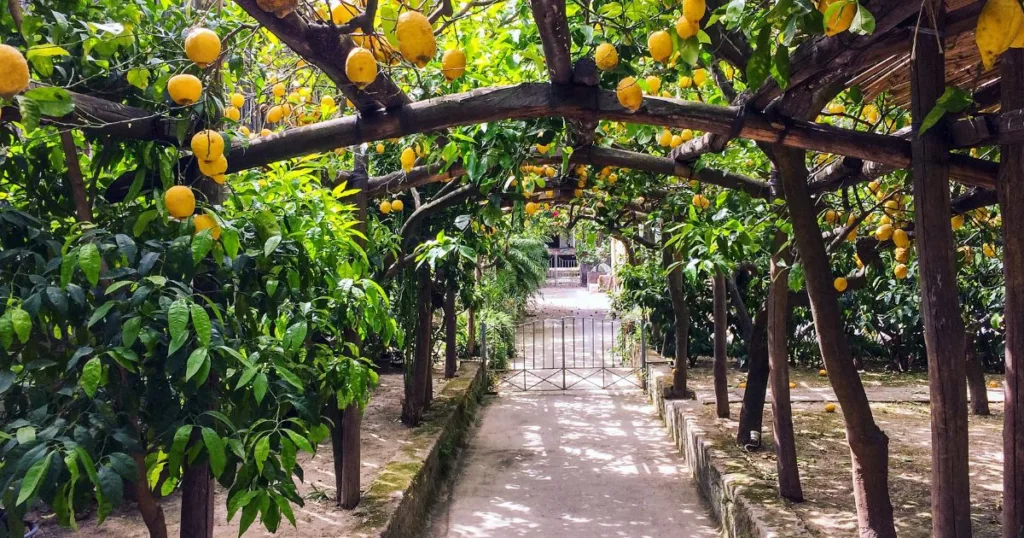
Essential Macro Nutrients
Starting in February, at the beginning of the growing season, apply your orange, lime, or lemon tree fertilizer (or whatever type of citrus tree you have).
Ideally, a balanced fertilizer with a 10-10-10 or 8-8-8 NPK (Nitrogen Phosphorus Potassium = NPK) ratio is ideal for any type of tree in the citrus family.
But besides these three essential nutrients, citrus trees also need many different micronutrients for the soil condition to support your citrus trees from the first year, the second year through the 100th year of growth.
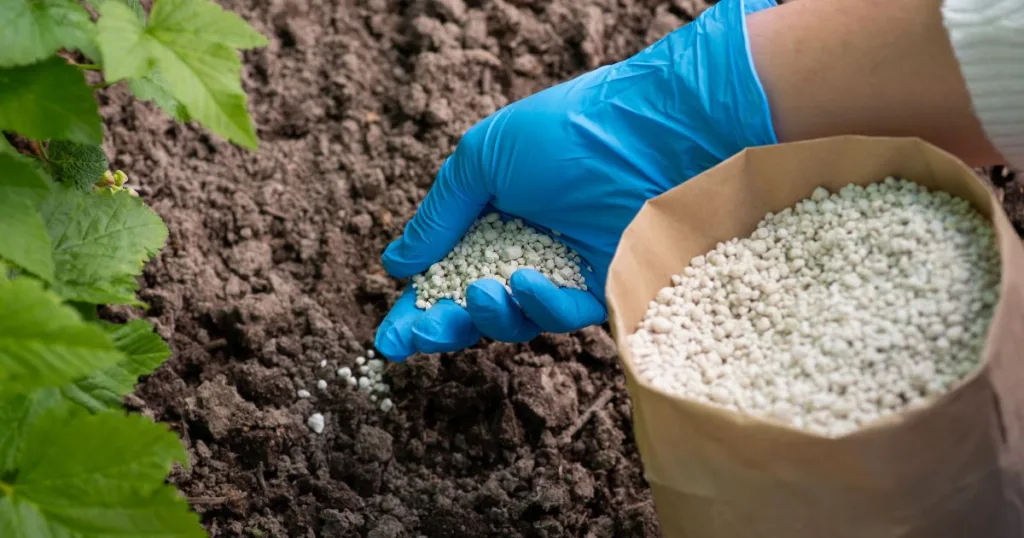
Micronutrients
Besides NPK (Nitrogen Phosphorus and Potassium), your citrus fruit tree will need the proper micronutrients as well.
These micronutrients or “trace elements” are not always included in a typical balanced citrus fertilizer.
To avoid a micro-nutrient deficiency in your lemon, orange, kumquat, or lime trees.
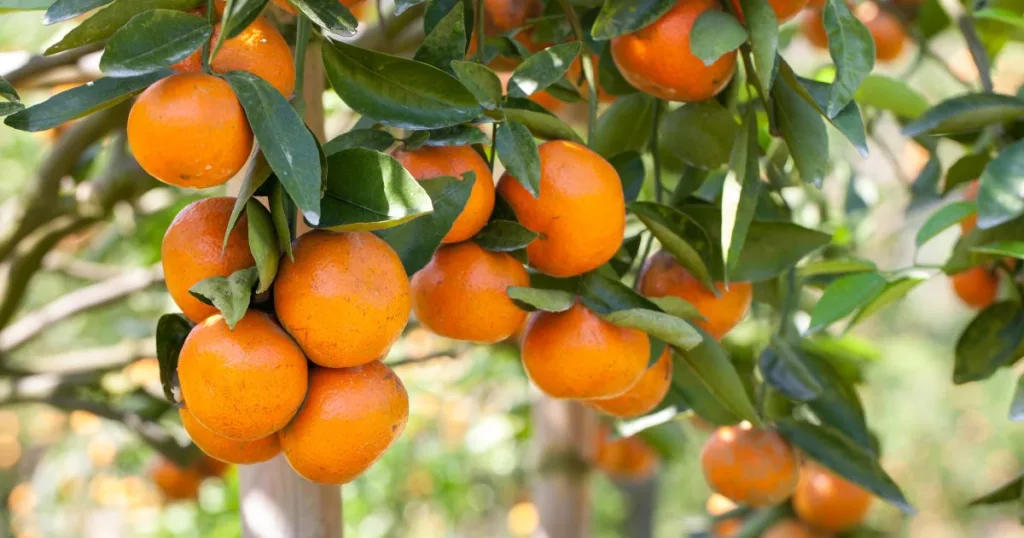
These Are My Favorite Micronutrient Supplements For The Best Results For Healthy Citrus Trees
Besides NPK (Nitrogen Phosphorus and Potassium), your citrus fruit tree will need the proper micronutrients as well.
These micronutrients or “trace elements” are not always included in a typical balanced citrus fertilizer. To avoid a micro-nutrient deficiency in your lemon, orange, kumquat, or lime trees.
Manganese (Mn)
Manganese is a critical component in the photosynthesis process. It is responsible for activating enzymes in the leaves of the trees.
When a citrus tree is deficient in manganese it can lead to yellowing of the leaves similar to an iron deficiency where the leaf turns yellow but the veins remain green.
Zinc (Zn)
For any citrus to be a thriving healthy tree it will need proper amounts of zinc.
When a citrus is deficient in zinc growth may become slowed or permanently stunted.
The best way to cure a zinc deficiency is with zinc sulfate or chelated zinc.
Read the fertilizer package to make sure zinc is included in the micro nutrients, otherwise, you can supplement.
Iron (Fe)
Of all the micronutrients required for a healthy growing tree, regardless of the type of citrus that it is, iron is one of the most important.
In order for chlorophyll production, during photosynthesis, to happen properly, there must be plenty of iron present in the soil which can be absorbed by the roots.
My types of liquid and granular fertilizer for citrus are fortified with iron, but others are not.
Make sure to supplement with iron chelates if yellowing of the leaves begins to occur.
It is rarely necessary to get a soil analysis to check for iron levels – your tree’s leaves will tell you everything you need to know.
Without a soil test, leaves with green veins and yellow centers will tell you that it is in desperate need of iron.
Copper (Cu)
Copper is required for several enzymatic reactions in citrus trees. If the specific needs of your tree, which includes copper, are not met, the leaves may become distorted and the tips of new growth can die back.
A lack of copper in your citrus plants and trees can be treated with combination sprays of copper-based fungicide or copper sulfate in late spring or early fall.
Boron (B)
Boron is essential for flower and fruit development as well as cell wall formation. Boron deficiency can cause fruit to become abnormal and misshapen. The cure is borax or boric acid added to the base of the tree.

The Best Citrus Tree Fertilizer
By following the recommended dosage of the best citrus tree fertilizer including liquid fertilizer and slow-release options and essential you are guaranteed to have very health citrus trees.
The options I shared for the best fertilizer are used by both citrus growers and home gardeners alike.
Don’t forget to fertilize three times per year, in late winter (or early spring) mid-spring, and late spring during the growth period.
The general guidelines are that the amount of fertilizer you should use is one pound of fertilizer for each year old the tree is. Young trees need much less fertilizer than older trees and in general, citrus are heavy feeders.
Citrus fruit production has much better results when there’s plenty of balanced NPK nutrient availability as well as fertilizer with trace amounts of iron, boron, copper, zinc, and manganese.
I’ve shared some of my personal preferences for the best citrus fertilizer, any of these fertilizers is a great option to take you through the blooming phase, the summer months, and the fruiting period of late fall and winter.
With the proper fertilization, full sun, and adequate watering you will have a bumper crop of citrus fruit.
Want to read more about Mediterranean gardening and eating?
Disclosure:
Here at All Roads Lead To Italy, we only recommend products we would use ourselves and all opinions expressed here are our own.
This post may contain affiliate links with potential savings at no additional cost to you.
In some cases, we may earn a small commission.
Read our privacy policy for full details.


Dreaming of Moving to Italy?🇮🇹 - Get this FREE podcast & be INSPIRED by someone who moved from New York to Italy in 2020!
*By signing up for this Podcast you’ll also be joining our mailing list through which we will keep you up to date on all things Italian! We never sell your information and you can easily unsubscribe at any time.
Share This Post
Author Info:

Nathan Heinrich
Nathan is a writer, designer & horticulturist. He is the founder and Editor-in-Chief of "All Roads Lead to Italy" Magazine & host of the Top-10 Travel Podcast, "I'm Moving To Italy!". Nathan was born and raised in a 6th generation farming family in Northern California, he is currently, a dual Italian citizen, living in the Prosecco Valley of Northern Italy, near Venice.

